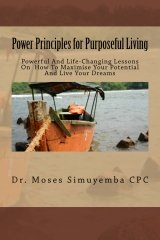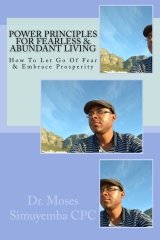Doing time
Are you just doing time or are you making your time count? Do you have a winning attitude at work and in business that will help you to perform well?
There is a saying that you either put everything you have into what you are doing or you don’t do it at all. But looking around you get the impression that this is not the case for many working class people today. “Doing time” has become the culture of our times. Doing the work and achieving results seems to be secondary.
Doing time – the general attitude
For instance, many times I have walked out of shops because of the unhelpful attitude of shop attendants and even owners of the shops. Sometimes this happened in spite of really wanting or needing something from them. It seems that when you ask for help their faces get all tight and they answer you with murmurs like you are really bothering them. But, really, why are you a shopkeeper if not to assist customers? Why do you run a shop if not to sell things by helping people find what they want? Why do you show up for work everyday?
The attitude seems to be that people feel they are doing enough simply by being at work. What you do at work doesn’t seem to matter, so long as you are there from eight to five you have earned you pay. The time has become the important thing, not the performance. It is almost as though they are in prison until they knock off, but they have no choice but to be there if they want to earn a living. They are “doing time.”
This shoddy work ethic is pervasive not only in public sector institutions, but in many private sector ones as well. There are relatively few individuals around who will apply themselves to their work without having a “the boss” watch their every step and bother them to show results for the time they spend at work.
Doing time – performance not time
“Performance-management” is a relatively new management concept that has developed in recent decades. The Free Management Library says: “Performance management reminds us that being busy is not the same as producing results.
It reminds us that training, strong commitment and lots of hard work alone are not results. The major contribution of performance management is its focus on achieving results -- useful products and services for customers inside and outside the organization. Performance management redirects our efforts away from busyness toward effectiveness.”
The key point is that there is a growing realisation that performance matters. Doing the time alone is not enough. Being busy is not enough. There are many that are very proud of doing time and show off the many years they have spent in an organisation with pride. Nothing wrong with that, but hopefully they have more to boast of apart from just the time. What have they achieved in that time? Have they grown as a person during that time, remained stagnant, or even worse, have they regressed?
Doing time – adding value
There are two things that you should always do in any place you work. The first is to add value to your workplace and the second is to add value to yourself. You add value to your workplace when you help the organisation achieve its objectives. You add value to yourself by developing your knowledge, skills and experience. It is a fact that the person who does not make an effort to perform at work is not the kind of person who will make an effort to perform when it comes to their own dreams, if they have any dreams to start with.
Doing time – an unfortunate example
I once had the privilege of sitting on an interview board. One of the interviewees was a middle aged gentleman whose CV was very impressive and from whom much was expected. The interview should have been a formality given his impressive CV.
However, during the course of the interview, it became clear that he was lacking in knowledge and expertise in spite of having worked so many years in so many places. So much so that some candidates that had just graduated and had nearly no practical experience did a lot better than he did. This seemed, to me, to be a classic example of doing time without adding value to yourself.
The habits you develop in your workplace are likely to be the same habits you will use when pursuing your own objectives and dreams. Even if you are a business person and self employed you should never get into the habit of just doing time. Develop yourself, your knowledge and skills. The world is ever changing. Just because your business is successful today does not mean it will be tomorrow. New and better products and services may show up. How are you going to ensure your continued success?
Doing time – be adaptable
Your best bet to survive and excel is on yourself and your ability to adapt to change. This will depend greatly on how much you have learnt over the years. As Albert Einstein said “Intellectual growth should commence at birth and cease only at death.” So if you are not growing you are probably as good as dead.
Never get into the habit of doing time. Make everyday in your life count for something. Remember that it’s not how much time you’ve worked that matters but what you have achieved within that time. Even when you do not fully understand why you should always do your best and grow continually, do it. As they say “fate favours the prepared.” The day will come when you will be glad you did.
Doing time – conclusion
Finally, as Ralph Marston advised, “Don't lower your expectations to meet your performance. Raise your level of performance to meet your expectations. Expect the best of yourself, and then do what is necessary to make it a reality.”
Return from "Doing Time" to Articles on motivation for serious dreamers
"Doing Time"
If you have a comment on "Doing Time" please post it on the comments page
Other Books By Dr. Moses:
Power Principles For Purposeful Living
"Powerful And Life-Changing Lessons On How To Maximise Your Potential And Live Your Dreams"
Power Principles for Fearless & Abundant Living
"How To Let Go of Fear and Embrace Prosperity"
In the POWER PRINCIPLES series of books, Dr. Moses Simuyemba, "Africa's Success Coach", shares his knowledge, experience and insight to help you in overcoming your personal challenges and limitations and inspire you towards the life you desire and deserve: a life of greater purpose, free of fear and full of abundance.


